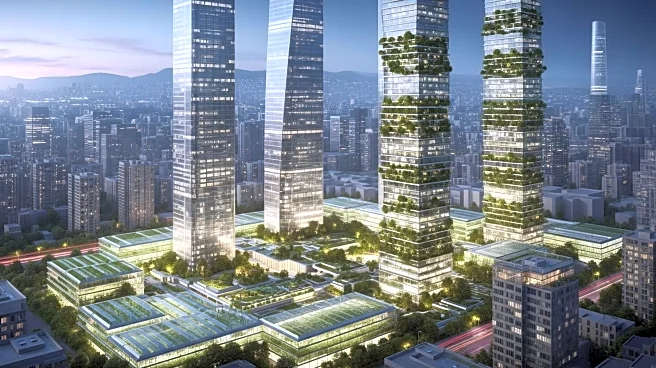What's Happening?
The urban farming market is projected to grow significantly, with its value expected to increase from USD 172.6 billion in 2024 to over USD 311.24 billion by 2032. This growth is driven by rising consumer demand for local, sustainable, and pesticide-free food. Urban farming is becoming a key component of city infrastructure, offering resilience, sustainability, and food equity. North America leads the industry, supported by technological innovation and eco-conscious consumers. Vertical farming and hydroponics are prominent segments due to their efficiency in space utilization and water conservation.
Why It's Important?
Urban farming represents a shift towards sustainable food production, addressing challenges such as food security, climate change, and urbanization. It reduces food miles and carbon emissions, contributing to environmental sustainability. The market's expansion supports local economies and provides fresh produce, enhancing community resilience and air quality. As cities adopt smart-city frameworks, urban farming becomes integral to green infrastructure, offering economic benefits and attracting public and private investment.
What's Next?
The urban farming market is expected to maintain strong momentum through 2025 and beyond, driven by technological integration. Cities are likely to incorporate vertical farms into residential and commercial spaces, enhancing energy efficiency and profitability. Strategic partnerships with food retailers and restaurants will expand, and mergers and acquisitions will increase as major corporations invest in agritech startups. Companies will focus on reducing energy consumption, automating operations, and engaging with policymakers for supportive regulations.
Beyond the Headlines
Urban farming is not just about food production; it plays a crucial role in community engagement and environmental awareness. It offers educational opportunities and promotes social impact, creating shared spaces for food access and sustainability initiatives. The integration of urban farming into city planning reflects a broader commitment to climate resilience and sustainable development.









